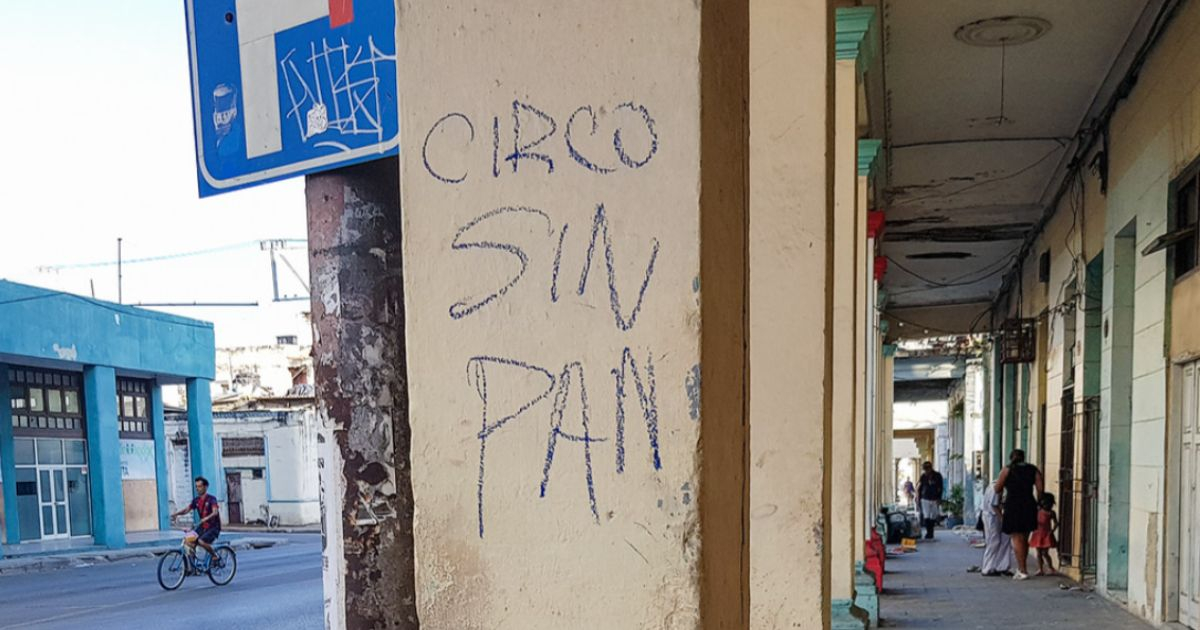The independent organization, Food Monitor Program (FMP), has issued a report asserting that the current crisis in Cuba not only rivals the hardships of the 1990s Special Period but actually surpasses it in terms of severity, depth, and accumulated deterioration. In a recent statement, the group laid out why it believes that the economic and social conditions on the island have reached unprecedented levels in the nation's recent republican history.
According to FMP, the multifaceted crisis impacting Cuba since 2018 has intensified in recent years, turning daily life into a struggle marked by shortages, failing public services, rampant inflation, and food insecurity. Unlike in the 1990s, the present situation involves a more widespread decay, with multiple essential systems collapsing simultaneously and no sign of genuine reforms or improvements from the government.
Inflation has been one of the most destructive factors, with independent estimates indicating it exceeded 500% between 2021 and 2023. This has led to a collapse in the purchasing power of wages and pensions. For example, a carton of 30 eggs now costs nearly two basic pensions, and a kilogram of milk is equivalent to the monthly minimum wage. Alongside inflation, a rising dollarization of the economy has excluded most of the population from accessing the formal market. Stores operating in the national currency are empty or have vanished, forcing people to turn to the black market for basic goods.
The deterioration of public services has further deepened the crisis. The electrical system, primarily composed of outdated thermoelectric plants over 40 years old, cannot meet national demand. Continuous power outages lasting up to 16 hours a day have been reported over the past five years in several areas. These outages directly affect food preservation, health, rest, and the minimal functioning of social life.
The potable water system is also in disarray. In Havana alone, by the end of 2023, there were more than 2,000 unrepaired leaks. Over half a million people lack steady access to running water, forcing many to store it themselves. Distribution schedules can have gaps of up to four days, severely impacting hygiene and the ability to safely cook food.
Since 2019, there have been severe restrictions on liquefied petroleum gas, the main energy source for cooking in Cuban homes. The situation worsened in 2025 when disruptions left 41% of Cuban families without access to this fuel. Many have resorted to primitive methods like cooking with wood or charcoal in makeshift ovens, posing health and safety risks. Without gas and electricity, many cannot boil water or prepare food properly, exposing the population to diseases.
FMP surveys reveal that over 76% of families have had their cooking capabilities affected by power cuts, leading many to reduce the number of daily meals or switch to cheaper, less healthy diets. This combination of shortages has led to food insecurity, forcing thousands of families to adjust their living schedules, stay home to wait for water, or alter their eating routines.
The social unrest has increased significantly, evidenced by neighborhood protests, pot-banging demonstrations, and spontaneous gatherings. Notable incidents include the May 22 protest in Santiago de Cuba and Bayamo with the slogan "Electricity and food," and another on May 17 in Pinar del Río after more than 20 hours without power. These expressions of dissatisfaction arise in an environment where, according to FMP studies, over 63% of the population blames the situation on poor government management, while only 8% cite the U.S. embargo.
Instead of implementing structural corrections, the Cuban government has responded with a repressive policy that criminalizes those demanding a dignified life. FMP criticized the administration for continuing to prioritize ideological and clientelist alliances, opting to import food and energy under subsidized schemes rather than executing a genuine recovery plan. The statement warned of a lack of political will to adjust the current model, keeping the country stagnant and closer to authoritarian structures like those in China or Russia.
In its conclusion, the Food Monitor Program argues that this crisis has surpassed the Special Period not only in visible effects but because it simultaneously impacts the food, energy, health, and economic systems, with no foreseeable resolution. The organization also condemned the regime's passivity, which survives by capturing foreign currency at the expense of Cuban families and their diaspora. For a real recovery, the observatory emphasized the necessity of deep transformation, including structural reforms, respect for citizen dignity, and productive reconciliation. They called for ensuring a dignified standard of living for all Cubans and rejecting the institutional inertia that currently perpetuates the systematic destruction of the country.
Understanding Cuba's Current Crisis
How does the current crisis in Cuba compare to the Special Period of the 1990s?
The current crisis is considered more severe than the Special Period due to its intensity, depth, and the concurrent collapse of multiple essential systems without signs of improvement.
What factors contribute to the ongoing crisis in Cuba?
Key factors include rampant inflation, a failing public services infrastructure, a growing black market due to dollarization, and severe shortages of basic necessities like food and fuel.
Why are many Cubans dissatisfied with the government's response to the crisis?
Many Cubans are dissatisfied because the government has not implemented structural reforms and has instead resorted to repressive measures against those demanding better living conditions.
